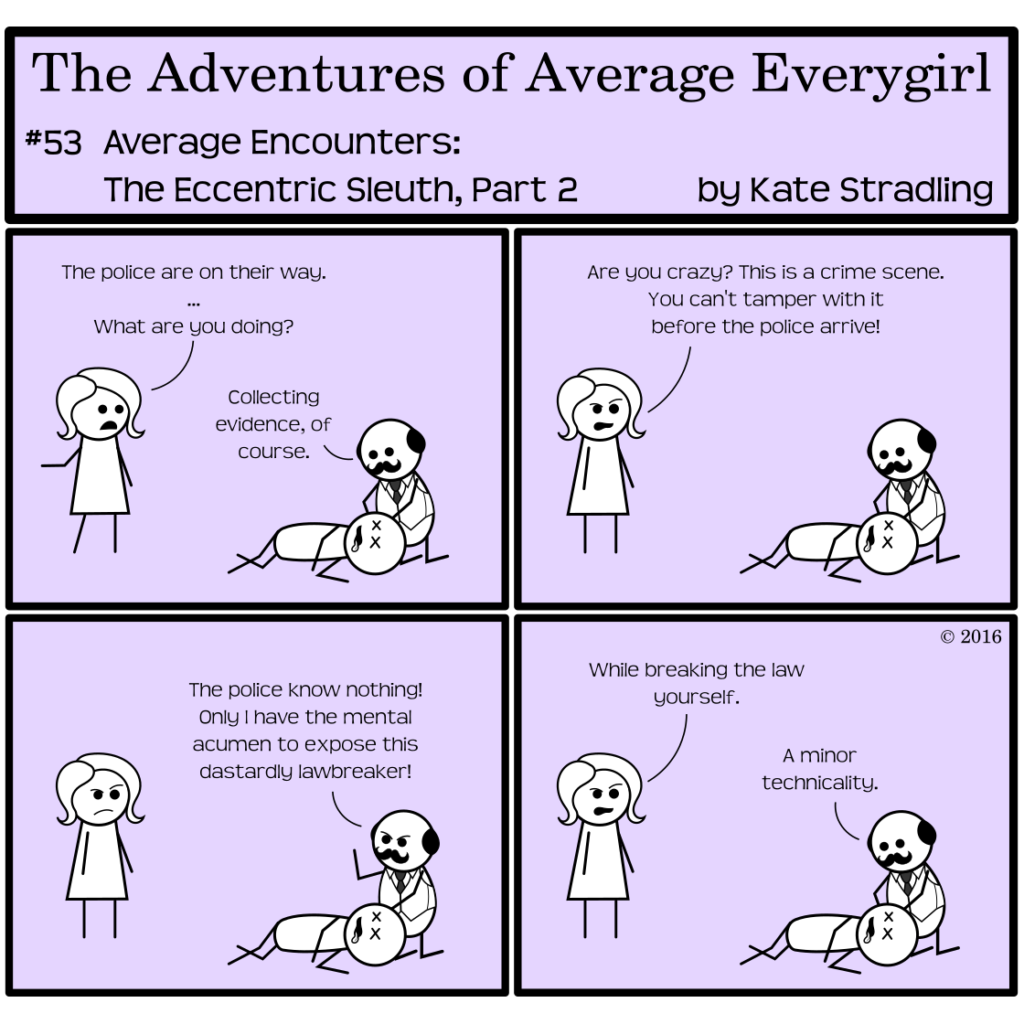
I’ll admit it. I cringe every time a fictional sleuth goes snooping where they shouldn’t, ignoring advice from the police to conduct their own investigation. I know, I know. It’s their job. They all can pick a lock or glean an area for foreign hairs and fibers, and they all have their independent labs to send evidence to for testing.
(And yes, I’m using the hyperbolic “all.” Some of the lazier sleuths simply steal lab reports instead of collecting evidence and submitting it themselves.)
Whilst they go about their illicit activities, part of me seizes in terror of them getting caught, and another part inwardly shrieks, “Cut it out, you criminal!”
Rubbing elbows, or maybe someone’s last nerve
Sometimes, the sleuth has a warm and fuzzy relationship with the cops, so their intrusive sleuthing gets a wink-wink-nudge-nudge of an overlook. Hercule Poirot is my poster child for this. But he’s also a former police detective himself (as Scotland Yard is well aware) and tends to keep his inspections within certain boundaries. He’s respectful of the police, and they return that respect in kind.
Many sleuths, however, have an adversarial relationship with the po-po. For the reader to sympathize with the lawbreaking sleuth, then, three possible situations emerge. The police must be
- Daft,
- Suspect, or
- Stonewalling
The Police Are Daft
In this scenario, we have brusque or bumbling LEOs who refuse to see the evidence right in front of them. They arrest the most likely suspect (who is rarely guilty) and sew up the case in a matter of minutes, never looking beyond the details that point to their chosen culprit.
Enter the eccentric sleuth, who recognizes something amiss in the patterns of the crime. The daft police refuse to listen, so the sleuth must go behind their backs to collect evidence and exonerate the innocent suspect.
(The Bletchley Circle does a lovely job with this scenario: a group of former code-crackers unravels crimes, and the police refuse to take them seriously because they’re women. And when their efforts are vindicated, it is GLORIOUS.)
The Police Are Suspect
In this scenario, there’s cause to suspect the police or members of the ruling elite as complicit in the crime. Politicians or puppet-masters higher up the chain might be pulling strings. Again, the police arrest the most likely suspect (who has been nicely framed) and sew up the case quickly, brushing all contrary evidence under the rug.
Again, enter the eccentric sleuth. Something amiss in the pattern, going behind backs to collect information, yadda yadda yadda.
You get the gist.
The Police Are Stonewalling
In this scenario, the sleuth is an amateur or a member of a protected class (a child, for example, Miss Flavia de Luce). The police cannot, in all professionalism, condone such an individual interfering with their investigation. They might even take this sleuth’s concerns seriously, but they will dismiss him or her from active participation.
Which, once again, leaves the eccentric sleuth skulking around in back alleys and generally getting into a lot of trouble.
And honestly, that trouble is what attracts the audience in the first place.
I mean, yeah, I cringe and squirm through the lawbreaking shenanigans, but I keep returning to the genre, too.